Just before the pandemic shut Vancouver down in March 2020, Natural Source was hitting its stride in the corporate food and beverage industry, providing fresh and shelf-stable snacks and beverages to “Google-style” tech sector offices in the city.
The individually packaged products were in demand — but the resulting packaging waste always rubbed Cody Irwin, the company’s CEO, the wrong way.
The business had just started venturing into zero-waste options: providing food in bulk or in reusable containers that could be returned for washing and redistribution by Natural Source. But then the pandemic arrived, and corporate office life shuddered to a halt.
“Our weekly recurring revenue dropped 98 per cent in a day. It was pretty devastating,” Irwin told The Tyee during a recent interview.
Natural Source needed to pivot. After jumping on the hand sanitizer production bandwagon, the company zeroed in on expanding the zero-waste reusable food and beverage packaging they’d developed for offices. The result was a new business venture: ShareWares, a reusable food packaging service for cafés, restaurants and events.
“We need to reduce our waste on this planet,” Irwin said. “We’re using 1.7 Earths of resources every year.”
The way it works: ShareWares users pay a deposit for a reusable dish with a unique QR code. When finished, customers place the dish in a ShareWares bin to return it to the company.
Once back at ShareWares, each container’s QR code is scanned and the customer’s deposit is returned to them. The reusable dishes are washed and returned to participating businesses for the next customer to use. Natural Source, which has now returned to Vancouver offices, uses the same containers in a symbiotic relationship with ShareWares.
After launching at a handful of cafés in Vancouver in the fall of 2021, ShareWares has since grown to include a reusable cup program and a partnership with Tim Hortons. The company is currently expanding into event venues like the Vogue Theatre.
Last year the province provided ShareWares with a $302,127 grant to expand its Vancouver-based washing and collection facility, enabling the service to process up to 100,000 reusable products per day.
The Tyee spoke with Irwin in early April about how ShareWares works, why customers need to demand reusable containers and how the circular economy can take a huge chunk out of our carbon footprint. This interview has been lightly edited for clarity and length.
The Tyee: Take me through your Tim Hortons partnership. How does that work?
Cody Irwin: Tim Hortons sells their reusable cups just like they would single use. The customer just has to pay a deposit for that cup. They go off, finish their coffee and return it to any one of our collection bins. Tim Hortons has their own bins, and there’s 17 streetside ones in downtown and just south of downtown, run by Encorp Pacific. So there’s a partnership between Tim Hortons, ourselves and Encorp for that.
After it gets collected, it comes back to us either through a waste logistics company like Encorp or our team brings the products back to our facility. Then we wash it, quality control it, scan it in to make sure that it’s come home. When we scan our QR codes, the funds are released to the customer and they get an email money transfer with their deposit. Our deposits range anywhere from like 30 cents on takeout containers up to a Tim Hortons cup at about $4.
What information does the customer have to give to get their money back?
We need them to give us a phone number to claim their cup; it’s a security thing. And then when they want to get their money back, if they want to get an email money transfer, they just have to give us their email. We also have a donate-to-charity function. So they can give to charity and not give us an email address.
They would give that information to a ShareWares app?
It’s an online platform. So if you scan any one of our products, you go right on to the online platform. We didn’t want to have an app, because everybody has a million apps. Or you can just scan any one of our QR codes on our bins. We made it really easy, because everybody’s internet connected.

But it can be non-technical. So if someone pays for a cup from a coffee shop in cash, they can bring it back to us at the depot and get cash back. We built it that way, so that other depots can also do that.
Is the process any different for event venues?
You’re basically just having dining ware. Like if a restaurant was having a party, you would just serve everything in reusable products instead of single use. The difference is, instead of throwing out the product, you bring it back to us or we pick it up.
Outside of your Tim Hortons partnership, who is doing the pickups?
That’s us. We go around the city and do pickups, but we can also see online how full our bins are. When consumers scan the QR code on the bin itself, that shows us the product that’s in that bin, so we need to go and collect from them.
Does all the washing happen at your depot?
We have a 5,000-square-foot warehouse, just outside of Olympic Village in Mount Pleasant. We’re not technically a depot, but people can bring back stuff to get cash back.
Natural Sources is the logistics partner. We have a really good symbiotic relationship. ShareWares is the washing infrastructure and the technology platform. Natural Sources is the vehicles, routing and all that stuff to do the deliveries and pickups.
We’ve aligned both businesses on the same mission of zero waste. We’ve launched zero-waste programs for offices: ShareWares sells empty packaging to Natural Source; Natural Source fills it up and does the zero-waste snacks deliveries to offices.
We also do bulk stuff. Natural Source sells empty reusable containers to offices so their staff can take that down to a cafeteria or local shop and get a coffee or lunch put into a reusable container, eat it and then put that in one of our collection bins. Then when Natural Source does their deliveries, we pick up those products, wash them and put them back in the system.
What are the containers made of?
Polypropylene, for the most part. Cost-wise, safety-wise and reuse, polypropylene is the best material. It’s high-temperature resistant, so it doesn’t melt in high-temperature dishwashers. And it’s the premium food-safe stuff. It doesn’t crack; it’s very malleable.
We did a quick calculation: it’s better to use one of our brand new cups once and then throw it in the recycling than using and recycling one pop can. Because of the amount of energy that it takes to be able to recycle that pop can.
Cans are efficient and effective. They’re ready to drink and then they’re recyclable. But it’s actually worse for the environment. There’s plastic inside of them already that has to get burned off.
Have you calculated what the energy benefit is for producing new single-use cups versus the energy producing, reusing, collecting and washing reusable cups?
Our coffee cup, it’s like 4 1/2 uses and then it becomes carbon neutral. Our takeaway containers are carbon neutral after the second use. It really depends on the mass of the products that are replacing the single use, and what the single use is.
You can have a reusable cup that is thicker, like a double-walled Tim Hortons reusable cup, that’s going to take many more cycles to become carbon neutral than one of our single-walled thinner cups. It has to be thicker than single use to be able to last, but you don’t want it to last for too long because then it’s bad on the environment.
An organization called Upstream has done a lot of the life cycle analyses that show that no matter what, reuse is better. Everything right now has been built for single use or for home reuse. But there’s this area that hasn’t been tapped into yet: public reuse.
Is ShareWares profitable?
Not yet. It’s a volume game. We’re fighting with the prices of overseas manufacturing. Most single-use products on the market are made at factories at mass scale with cheap labour, and so a cheap product. We need to get up to scale to be able to really make it profitable. There are some people that want to do it and will pay a little bit extra, and more and more will adopt it. So we don’t see profitability too far away.
At scale, if you’re going to have a zero-waste city, you need to be doing millions of units a day for just food products. That’s takeout. That’s grocery. If customers want it, businesses will adopt it, manufacturing will adopt it, politicians will adopt it, because they want to be voted in. People want this? It’s happening.
Do people have hygiene concerns about reusing containers?
There’s been an “ew” here and there on Instagram. But you’re already doing it: going to a restaurant, you’re eating off a fork that somebody else ate off of. This is no different.
We have a general manufacturing practices high-hygiene certificate from NSF, which is a world authority for hygiene. We have a Hazard Analysis Critical Control Points Plan — all these things that food manufacturers use.
We’re using Ecolab, a world-renowned chemistry company that provides cleaning agents. Instead of it going from your table into a kitchen to get washed, it’s going from your table to a collection bin to our washing facility and then getting washed. The only difference is it goes on a little trip.
As products are reused, washed and circulated, do you have any concerns about them shedding microplastics?
The Ecolab agents that we use are specifically made for polypropylene and are very gentle on them. We haven’t done any studies. But by using gentler agents and being aware of these things, then we can reduce those.
You mentioned that it’s possible to scale up to citywide or larger. What about scaling down for smaller communities?
There’s a town in Ireland that banned all single-use cups. And now they all do their own washing, and they have a reusable cup program. It can absolutely work. You could collect cups at your location as a café and wash them yourselves. if you have overcapacity, you could always sell them to another café. I can definitely see that working at small scale and the infrastructure is already in place at restaurants, cafés, hotels, airports.
You mentioned expanding your warehouse space with last year’s provincial grant. What else did the grant provide?
It allowed us to upgrade our washing facility to be able to have higher capacity. Before, we just had a single, very manual commercial washing machine. We wanted to prove that we could be a utility for a city. So if we had thousands and thousands of cups or containers that came in, we’d be able to sort, process, prep, wash, dry, quality control and pack.

We didn’t have a high enough water flow rate. So we had to upgrade the whole building: pay for some power upgrades and linking in some machines, get the new machine and then a bunch of HVAC necessary items. Now we have the foundation; there’s still more work that needs to be done. The exciting engineering stuff that I like to do. That’s why I’m hiring business development people to help me, so that I can get back to washing dishes.
You wash dishes?
Yeah, you gotta get in there. My dad lives on a farm, and I grew up washing dishes in summers for people that would come and stay in the camps and ride horses. I didn’t think I was going to grow up to be a dishwasher. But it looks like it.
What kind of reception are you getting from businesses when you approach them to partner with ShareWares?
Very different depending on the business. The ones that call us, they’re generally very excited. They absolutely love it. Some of the cafés that we’ve had since the beginning, they love it because they understand it’s a problem.
The other cafés, they use the cost as the barrier. But if people were asking for it, then that cost wouldn’t matter. They would be like, “Well, I’ll just change my pricing.” So it’s really igniting customers and sparking interest that can get these things going.
Do you have a minimum cost for a café to partner with you guys?
We’ll sell them a case of 20 cups, 25 cents a cup. We’ll give them some free cups if they want to get on board. It’s pretty much free to get started. It’s like, “We’re giving away free gold here. Who wants some?”
Have you been in contact with the City of Vancouver about making this like a wider available service?
We worked with the City of Vancouver to do some of their shops and it wasn’t the right environment for it.
You would hope that the city would be more involved. And we’d like them to be. Their zero-waste challenge — was it 2040? We could get them there and be a zero-waste city by 2030, if they were into it.
I don’t want to badmouth them; we need to work with them. But we could do this faster for them if they open some doors for us. And we have had city councillors help us, too. So there’s some support, but it needs to go through the whole bureaucracy, different departments that don’t talk to each other.
Right now, it’s just kind of like, “We want to be zero waste.” It’s like, “So how are we gonna get there?” [The city is] like, “We’re working on it.”
That’s why we made it until 2040.
Yeah, exactly.
This article runs in a new section of The Tyee called ‘What Works: The Business of a Healthy Bioregion,’ where you’ll find profiles of people creating the low-carbon, sustainable economy we need from Alaska to California. Find out more about this project and its funders. ![]()
Read more: Food, Environment
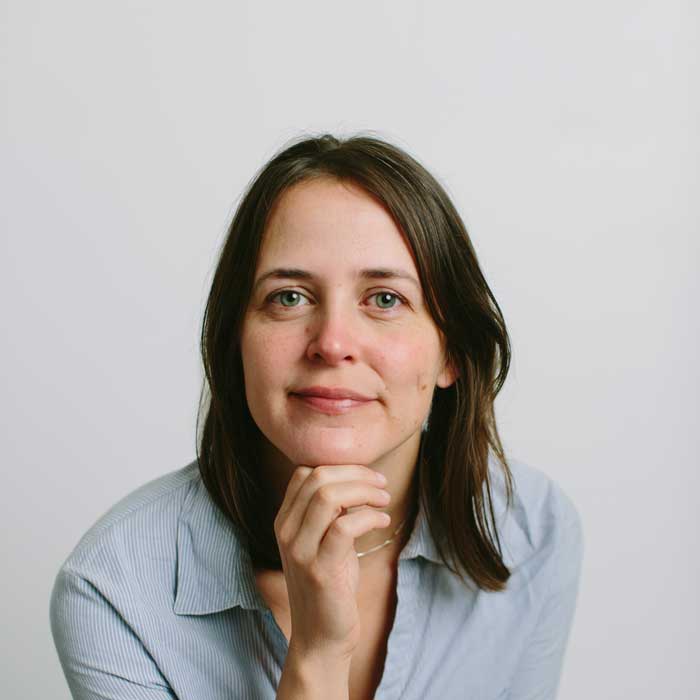

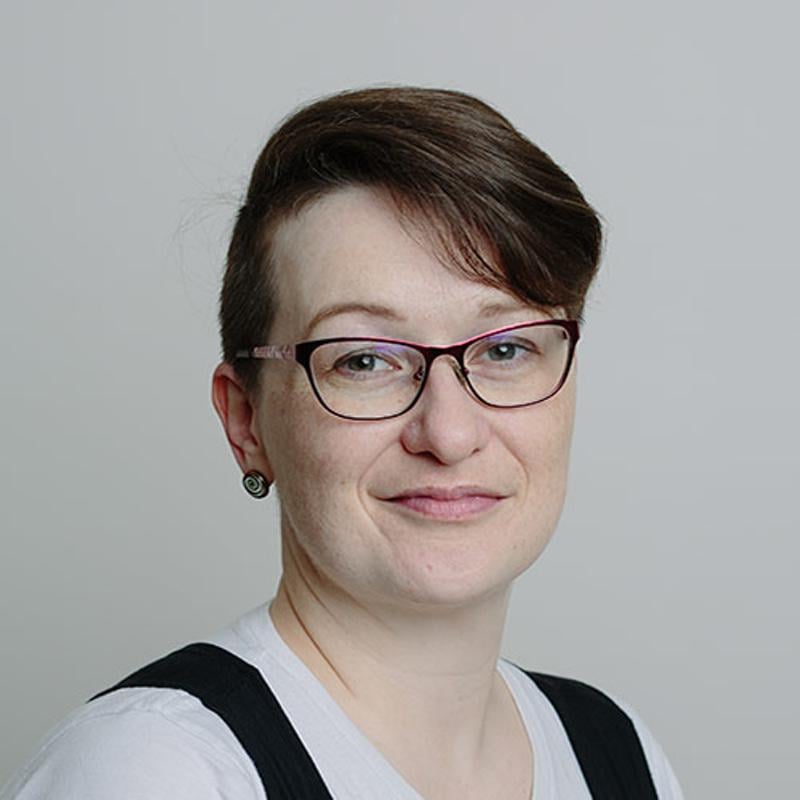



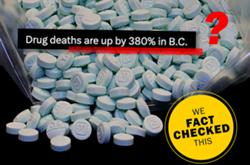
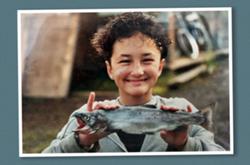
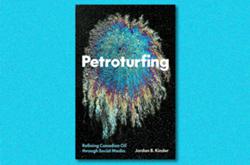
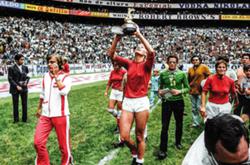

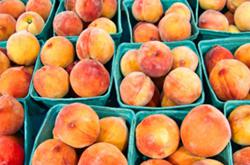
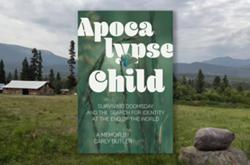
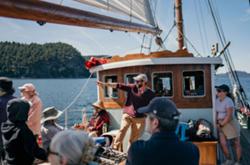
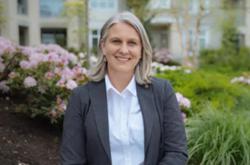

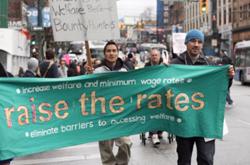
Tyee Commenting Guidelines
Comments that violate guidelines risk being deleted, and violations may result in a temporary or permanent user ban. Maintain the spirit of good conversation to stay in the discussion and be patient with moderators. Comments are reviewed regularly but not in real time.
Do:
Do not: